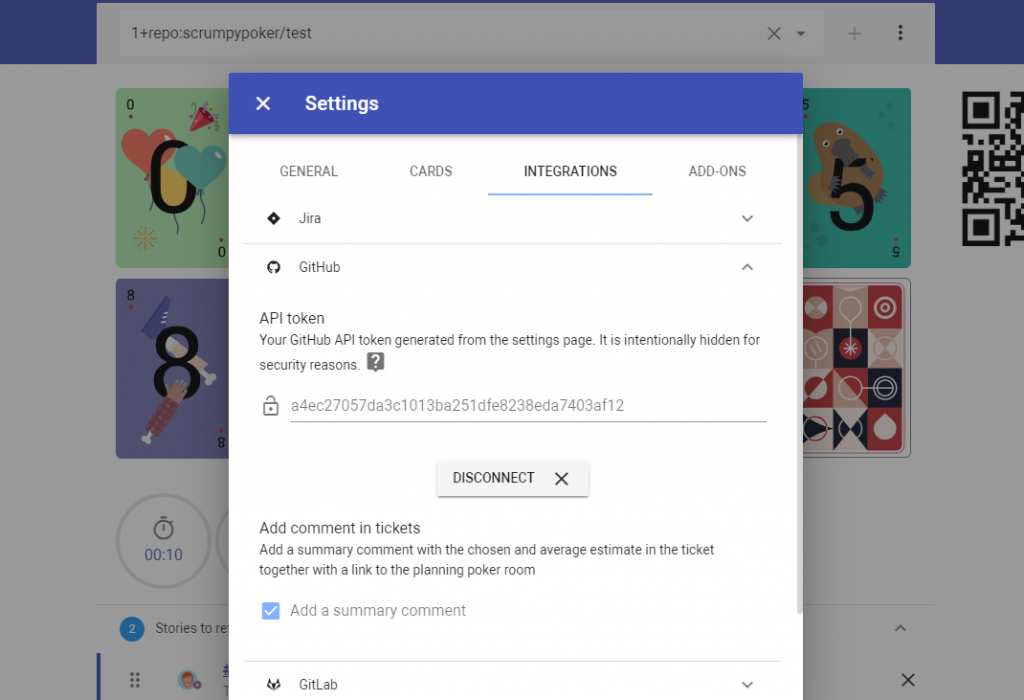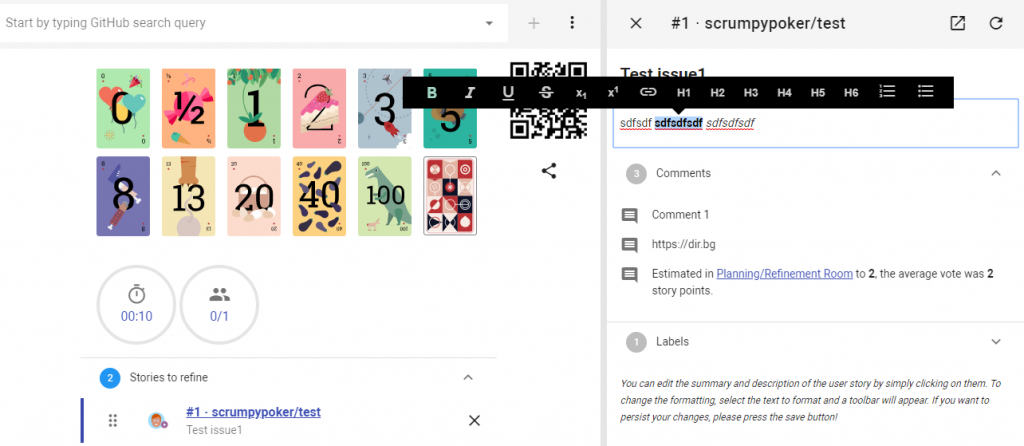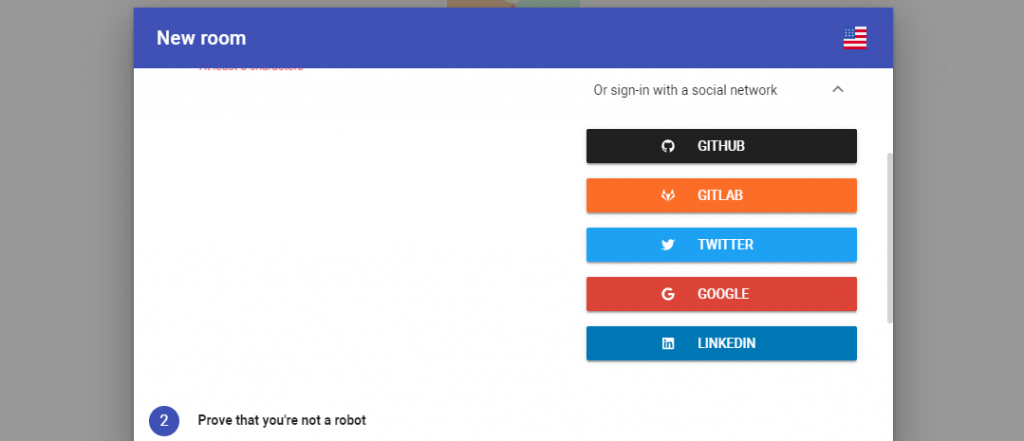Introduction
In this release there are quite some major improvements. A lot of work has been done to improve the performance and add support for new platform integrations.
New features
The quite big set of new features include GitHub, GitLab, Confluence summary improvements and complete refactoring of the code to allow great performance in the browser.
GitHub support
Now it is possible to integrate with GitHub directly and using GitHub queries it is easy to list and add stories for estimation. Both issues from free public repositories as well as private repositories can be estimated.
Sign In with GitHub
Signing in Scrumpy Planning Poker can now be done with GitHub. Just select the button from the list of social sign in and you’ll be listed in the planning poker room with your GitHub avatar and name:

After signed in, others will see your GitHub profile, but access to issues is still not set up.
Integration
To complete the configuration, go to the Settings page and set the GitHub access token that was previously created.

To create a personal access token for access with GitHub, go to your settings page and choose Personal Access Tokens.
As in the Jira Cloud integration, there is an option to add comments to issues that are being estimated. The comment includes a link to the poker room as well as the result of the estimate.
Listing issues
To find the issues that will be estimated and add them to the list of planned story, as usual, search for the issues in the query box. The queries supported are GitHub queries which can be used to find any issue in both public and private projects. For example, to list only issues in a particular project, use the repo: prefix, for example repo:scrumpypoker/test. You can list stories assigned to a user, created by a user or just do a free-text search for example Abracadabra+repo:scrumpypoker/test will search for all issues that have Abracadabra in the summary or description and belong to the scrumpypoker/test project. More information about the GitHub queries can be found in the GitHub Search documentation.
In case you forget about this link, it is always accessible from the story context menu (About GitHub queries):

Editing issues
The collaboration editor is integrated with GitHub so you can edit in-place the GitHub summary, description and labels as in the Jira add-on.

Estimating the stories
Since there is no field that is designated to story points in GitHub, this is done using labels. The label estimate:<points> is used to mark the estimate of a story. Any previous estimate is removed prior to assigning a new estimate.

GitLab support
Now it is possible to integrate with GitLab directly and using GitLab project-based free-text search, it is easy to list and add stories for estimation. Both issues from free public repositories as well as private repositories can be estimated.
Sign In with GitLab
Signing in Scrumpy Planning Poker can now be done with GitLab. Just select the button from the list of social sign in and you’ll be listed in the planning poker room with your GitLab avatar and name:

After signed in, others will see your GitLab profile, but access to issues is still not set up.
Integration
To complete the configuration, go to the Settings page and set the GitLab access token that was previously created.

Except the personal access token, the GitLab integration needs also a root project that will be bound to this planning poker room. All queries for issues from now on will be for this project only. This is a bit different from the GitHub integration due to the GitLab specifics.
Note: you cannot start estimating stories until both the token and the project is selected. You can generate a personal access token from the GitLab settings page. Just make sure you give it API scope.
Listing issues
Issues can be listed from the search query using free text and wildcard matching as described in the GitLab search documentation. For example, exception free text pattern matching, you can use #1 for for issue number 1, #2453 for issue with IID 2453, etc.

Editing issues
The collaboration editor is integrated with GitLab and the currently focused issues can be edited as usual. Additionally, comments can be viewed (only the ones added by real people, e.g. excluding the system comments) and labels can be edited.

Estimating the stories
Note: the estimation now utilizes the Weight field when story points are used and Estimate when time mapping has been specified in the room settings. Please refer to the latest release notes about this here.
As in the GitHub and Jira integrations, when the Add Comment option is checked, a comment is added in the issue after each successful estimate:

Manual Confluence summary generation
Now there is an easy shortcut to generate a Confluence summary page after the refinement session is over. Previously, this was done automatically. From now on, this option is available only for manual trigger. The generation can be triggered from the … context menu of the refinement session when the root Confluence Page that will hold the reports has been assigned from the Settings page.

Fixed Bugs
Together with the features, several bugs have been fixed.
Social login not working
Due to Twitter requesting extra information and Google migrating away from Google Plus, those two social login buttons did not work. Now they are back in order.

New Room creation not always successful
Sometimes, creating a new room required you to manually refresh the page to see the cards. Now this is no longer required and the room is open as soon as it is created after pressing the Poker Now button.
Confluence not able to select a root page
The configuration to choose the root Confluence page in the settings was gone and now it is back in place:

